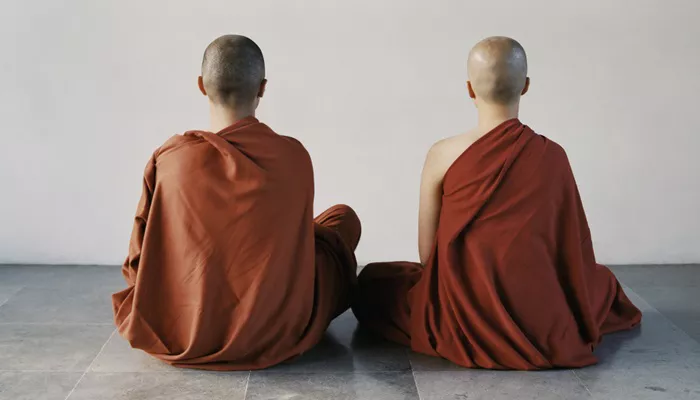Jeon Hyun-soo, a psychiatrist and practitioner in South Korea who has studied Buddhism for more than 40 years, believes that focusing on the present moment is the key to overcoming life’s difficulties.
“The answer to all problems is in the present moment. Most of my patients focus on the past or the future. Encouraging them to focus on the present moment allows them to see the essence of their problems,” says Jeon, 69.
He recently published “A Guide to Using Buddhism” and is the founder of Buddhist psychotherapy, which incorporates Buddhist principles into treatment.
“The earliest Buddhist scriptures are the closest to the Buddha’s teachings, and they clearly spell out ways to reduce suffering and find peace in life. For modern people who suffer from suffering, these scriptures are both a wake-up call and the best medicine.”
Why would a psychiatrist use Buddhism as the basis of his treatment?
“Buddhism is the perfect system to eliminate suffering,” he says.
His journey began when Buddhist scholar Ko Ik-jin of Dongguk University in Seoul shared this experience with him while he was a second-year resident.
“This statement resonated with me and led me to study Buddhism. After all, psychiatry is also a tool to eliminate human suffering. I began to see Buddhism in a new light, not just another cultural tradition.”
As he immersed himself in Buddhist teachings and practices, he gained insights into the profound nature of the mind. However, his curiosity and desire to know how to completely liberate and transform the mind only grew stronger. This led him to close his clinic twice to devote himself to meditation practice.
During a short period of monastic life in Yangon, Myanmar, he learned meditation techniques such as samatha and vipassana from Theravada Buddhism, and eventually experienced a state of samadhi in which all troubles disappear.
Theravada Buddhism, also known as the “teachings of the elders,” is a school of Buddhism whose scriptures are inspired by the Pali Canon, which is widely considered by scholars to be the earliest extant record of the Buddha’s teachings.
Over the past two decades, Professor Jeon has continued to refine a system of treatment based on Buddhist teachings. He has collaborated with monks, psychologists, and psychiatrists to study the intersection of Buddhism and psychotherapy, and even founded the Korean Association of Buddhism and Psychotherapy.
Over the years, he has learned Pali and Sanskrit, read early texts, and systematically applied their concepts to psychiatry.
“After repeated verification, I am convinced that Buddhism can be used as a treatment. This is a clinical trial. If I find the most precise and effective treatment, why shouldn’t I use it?” Mr. Quan said with a smile.
How does he integrate Buddhism into his treatment program? Mr. Quan first helps patients explore the nature of their body and mind.
The first step in all treatments is to make patients aware of their anxiety, anger, obsessions and impulses and find out their roots. Then, he analyzes how their mental paths were formed.
Based on this, he prescribes appropriate meditation techniques for each patient to guide them in rebuilding their mind.
“The human mind can only focus on one thing at a time. Based on Buddhist principles, we train patients to observe how their mind follows a pre-set path and help them stop the negative mental cycle through specific and direct meditation techniques.”
His book provides guidance for those who want to manage their mind with Buddhist principles without going to the hospital.
“All suffering has a cause and effect. This is the basic principle of the Buddhist law of cause and effect. The hope is that we can create new systems based on the way we think. Remember, the path of life is what you make it.”

